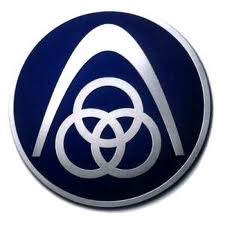
thyssenkrupp confirms full-year forecast of at least €1.4 billion adj. EBIT / Q3: significant quarter-on-quarter improvement in earnings and cash flow / signs of recovery in materials businesses
The capital goods businesses and the efficiency program “impact” continue to be the stabilizing factors for the industrial and technology group thyssenkrupp in the current fiscal year. Both the components and elevator businesses again recorded structural growth. Groupwide savings at more than €700 million were higher than planned. Overall, however, the first 9 months of the fiscal year were characterized as expected by the very difficult conditions on the materials markets and continued high steel imports. In the 3rd quarter there were however clear signs of recovery, leading to quarter-on-quarter improvements in the key performance indicators of all the materials businesses. Based on this, thyssenkrupp reaffirms its forecast for the full fiscal year. “We are now seeing initial improvements in material prices. This will impact favorably on our future earnings,” says Dr. Heinrich Hiesinger. The CEO of thyssenkrupp sees the group on the right path: “Our Strategic Way Forward and systematic management of efficiency measures are stabilizing us in a difficult materials environment. We are continuing to concentrate on the things we can influence ourselves. And that is paying off,” adds Hiesinger. The Group’s order intake and sales were lower year-on-year in the first 9 months and in the 3rd quarter, also on a comparable basis, i.e. excluding currency and portfolio effects. The declines were mainly due to the sharp drop in prices in the materials businesses extending well into the 2nd quarter. In the capital goods businesses Components Technology profited among other things from growth in car components in Western Europe, the USA and China. This meant that, in a difficult environment for truck and construction machinery components, order intake and sales were level year-on-year. Elevator Technology reported clear sales growth. However, order intake was down slightly year-on-year, mainly because of a major order for passenger boarding bridges the year before. In the Industrial Solutions business area, where there remains a high volume of bids in a promising status, customer caution on account of low oil and raw material prices continued to weigh on business. Adjusted EBIT increased significantly in the 3rd quarter to €441 million, but was weaker year-on-year due to the decline in the materials businesses. In the first 9 months adjusted EBIT was down by €259 million at €1,001 million (prior year €1,261 million) and in the 3rd quarter by €98 million at €441 million (prior year €539 million). Five out of six business areas achieved a significant quarter-on-quarter improvement in adjusted EBIT in the 3rd quarter. Steel Americas generated strong positive earnings at €39 million. Only Industrial Solutions reported a decline as expected against an exceptionally strong Q2. Quarter-on-quarter the Group more than doubled its net income from €45 million to €124 million in the 3rd quarter. Overall in the first 9 months net income came to €115 million (prior year €279 million). After deduction of non-controlling interest, net income was €168 million (prior year €297 million). Earnings per share came to €0.30 (prior year €0.52). Free cash flow before M&A was significantly better in the 3rd quarter €205 million than in the 2nd quarter (€(365) million). Over the first 9 months the figure was as expected clearly negative at €(1,007) million, mainly due to a normal seasonal increase in net working capital. Accordingly net financial debt increased to €4.8 billion in the first 9 months, but decreased slightly quarter-on-quarter. Compared with September 30, 2015 total equity was lower at €2.7 billion. This was mainly due to the revaluation of pensions as a result of lower interest rates. As a consequence the Group’s gearing increased temporarily to around 175 per cent. By the end of the fiscal year thyssenkrupp expects a significant improvement in gearing to below 150 per cent. For the full year the Executive Board continues to expect the Group to achieve adjusted EBIT of at least €1.4 billion and net income level with the prior year (prior year €268 million). The efficiency program “impact” will contribute EBIT effects of at least €850 million. Depending on payment timing on major orders, free cash flow before M&A is expected to be between a low three-digit million euro negative figure and break-even. |
